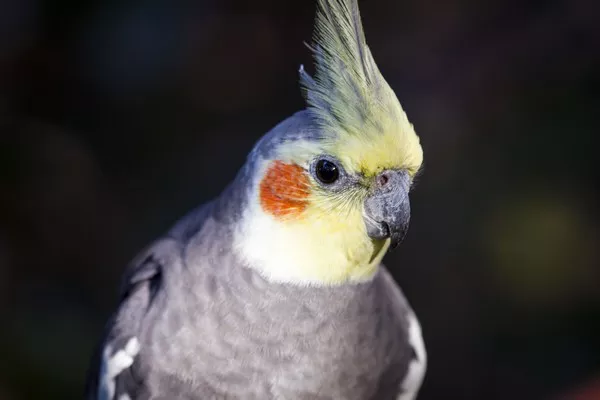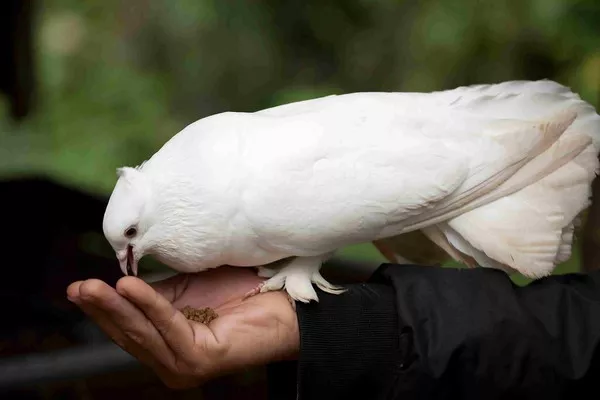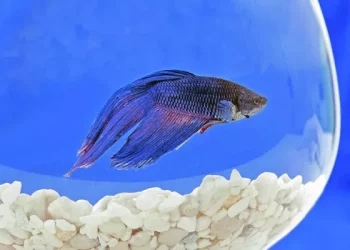Green Cheek Conures are a popular choice for bird lovers seeking a small, colorful, and affectionate pet. Known for their playful personalities and charming nature, these birds have gained a reputation for being great companions for individuals and families alike. However, as with any pet, it’s essential to understand their characteristics, behaviors, and care requirements to determine whether they are a good fit for your home. In this article, we will explore the unique traits of Green Cheek Conures, their needs, potential challenges, and whether they make suitable pets for different types of owners.
Introduction to Green Cheek Conures
Green Cheek Conures (Pyrrhura molinae) are small parrots that are native to the forests of South America, particularly in countries like Brazil, Argentina, and Bolivia. They belong to the Conure family, which is a subgroup of the parrot family known for their playful and social behaviors. Green Cheek Conures are part of the Pyrrhura genus, which includes several other species of conures, but they are among the most popular due to their smaller size, beautiful plumage, and gentle nature.
These birds typically have a vibrant mix of colors, with a green body, a maroon-colored tail, and a slightly darker head. Their charming demeanor and relatively small size make them appealing to many bird enthusiasts, especially those looking for a companionable pet that is easy to care for.
Physical Characteristics
Green Cheek Conures are small birds, usually measuring around 9 to 10 inches in length from beak to tail and weighing between 60 to 80 grams. Their plumage is mainly a deep green with shades of blue and yellow, giving them a lively and attractive appearance. The tail feathers are a reddish-maroon color, and their beak is a slightly darker shade of gray or black. They have a short, rounded tail and a relatively stocky body compared to other parrots.
One of the most distinctive features of Green Cheek Conures is their facial mask, which is often darker than the rest of the body, making them appear particularly expressive. This feature adds to their cuteness and appeal.
Behavior and Personality
Green Cheek Conures are known for their sweet and affectionate nature. They are highly social birds that thrive on interaction with their human companions and can form strong bonds with their owners. Despite their small size, they possess large personalities, often displaying curious, playful, and sometimes mischievous behaviors.
These birds enjoy being around people and are typically very vocal, especially when they want attention. Their vocalizations include chirps, whistles, and various other sounds, but they are not as loud as some of the larger parrot species, making them suitable for apartment living. However, like all parrots, they can be noisy at times, so potential owners should be prepared for some level of sound.
Green Cheek Conures are also known for being affectionate. They love to be handled and will often seek out attention and affection from their owners. They may sit on your shoulder, cuddle, or gently preen your hair. Because of their strong social nature, they can become very attached to their owners and may exhibit signs of jealousy or separation anxiety if left alone for extended periods.
Are Green Cheek Conures Good with Other Pets?
Green Cheek Conures are generally friendly with other pets, especially if they are introduced to them at a young age. They can coexist well with other birds, including other species of conures, provided they are not too territorial. However, it is essential to supervise interactions with larger animals such as dogs and cats, as their small size makes them vulnerable to potential harm.
If you have other pets in the household, especially birds, it is a good idea to introduce them slowly and allow them to get accustomed to one another’s presence. Always monitor interactions closely to prevent any accidents. While Green Cheek Conures can get along with other animals, their primary bond is usually with their human family members.
Training and Socialization
Green Cheek Conures are intelligent birds that are highly trainable, though they may require patience and consistency. They can learn basic tricks, commands, and even a few words or phrases with proper training. Positive reinforcement, such as treats and praise, works best when training them.
Because Green Cheek Conures are naturally social, they enjoy being involved in family activities. Training sessions can be an excellent way to strengthen the bond between you and your bird. Consistency is key when training, as these birds thrive on routine and will quickly pick up on signals that indicate when it’s time for training or play.
Grooming and Care
Like all pet birds, Green Cheek Conures require regular grooming to maintain their health and well-being. Here are the main aspects of their care:
Feeding: Green Cheek Conures are primarily herbivores and require a balanced diet to stay healthy. A high-quality pelleted diet should form the base of their nutrition, supplemented with fresh fruits, vegetables, and seeds. It’s important to avoid feeding them avocados, chocolate, caffeine, or other foods that are toxic to birds. Fresh water should always be available.
Exercise: These birds are active and need plenty of space to move around. Providing a spacious cage with toys and perches is essential for their mental and physical stimulation. Out-of-cage playtime is also important to ensure they get enough exercise. This can include free flight time in a safe area or interactive play with their owners.
Socialization and Attention: Green Cheek Conures thrive on social interaction and should not be left alone for extended periods. If you are away from home frequently, you may want to consider getting a second bird or enlisting someone to spend time with them. Regular socialization and interaction are key to preventing behavioral problems like biting or feather plucking.
Grooming: Regular grooming is necessary to maintain your Green Cheek Conure’s appearance and health. They may require periodic nail trimming, which should be done carefully to avoid injury. Bathing is another essential part of their grooming routine, and they may enjoy misting or a shallow dish of water to bathe in. Regular inspection of their feathers, beak, and claws ensures they are in good condition.
Cage Requirements: Green Cheek Conures need a cage that is large enough to accommodate their playful nature. Ideally, their cage should be at least 24 inches wide, 24 inches deep, and 30 inches high. The bars should be spaced no more than half an inch apart to prevent them from escaping or getting stuck. The cage should contain a variety of perches, toys, and enrichment items to keep your bird entertained.
Common Health Issues
Green Cheek Conures are generally healthy birds, but they can suffer from certain health issues if not properly cared for. Common health concerns include:
Feather plucking: This can occur due to stress, boredom, or improper diet. It is essential to provide a stimulating environment and proper care to prevent feather plucking.
Obesity: Green Cheek Conures are prone to weight gain, especially if they are fed a diet too rich in seeds. A balanced diet and plenty of exercise are essential to prevent obesity.
Respiratory infections: These birds are sensitive to poor air quality and drafts. Keeping their living environment clean and ensuring they have proper ventilation can help avoid respiratory issues.
Chronic egg-laying: Female Green Cheek Conures may occasionally lay eggs, even without a mate. This can lead to health problems, including calcium deficiencies and reproductive issues. Spaying or careful management of their environment can prevent excessive egg-laying.
Regular veterinary checkups are crucial to ensure your bird’s health. A bird-savvy vet can help detect early signs of illness and provide appropriate treatment.
Challenges of Keeping a Green Cheek Conure
While Green Cheek Conures are generally wonderful pets, there are some challenges that prospective owners should consider:
Noise: Although they are not as loud as larger parrots, Green Cheek Conures can still be noisy, especially when they are seeking attention or expressing excitement. Their vocalizations can be a challenge in apartments or shared living spaces.
Time commitment: Green Cheek Conures require significant time and attention from their owners. They are highly social and can develop behavioral problems if neglected or left alone for too long.
Destruction: Like most parrots, Green Cheek Conures are known for their love of chewing. They may destroy furniture, electrical cords, or other household items if not properly supervised or provided with appropriate toys.
Health issues: While generally healthy, Green Cheek Conures are still susceptible to certain health problems, and managing their health requires vigilance, regular vet visits, and proper care.
Are Green Cheek Conures Good Pets for You?
So, are Green Cheek Conures good pets? The answer depends on your lifestyle, living situation, and the time and effort you are willing to invest in caring for them. If you are looking for a small, affectionate, and playful bird that can become a close companion, a Green Cheek Conure might be an excellent choice. They are well-suited for individuals or families who have the time and patience to provide them with social interaction, mental stimulation, and regular care.
If you live in an apartment or a smaller space, it is important to consider their noise level and activity needs. Also, if you are often away from home, you may need to find ways to ensure your bird receives adequate attention, or you might consider getting a second bird.
Conclusion
In conclusion, Green Cheek Conures are wonderful pets for the right owner. They are affectionate, playful, and easy to love. With the proper care and attention, a Green Cheek Conure can bring joy and companionship into your home for many years. If you are ready to invest the time and energy needed to care for them, these charming little birds will reward you with their unique personalities and unwavering loyalty.
Related Topics:



















